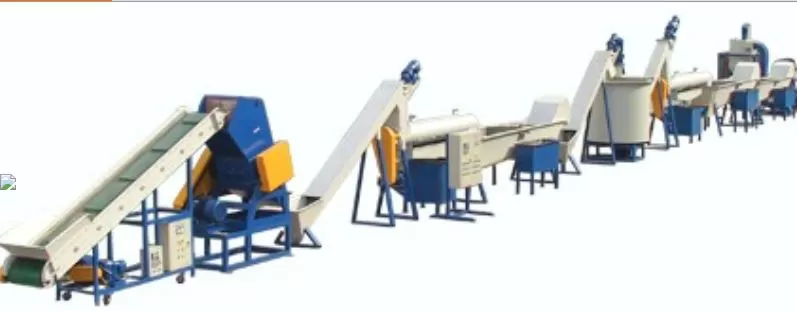Plastic pollution is spiraling out of control, threatening the environment we all rely on. For entrepreneurs, especially in a market increasingly demanding eco-friendly solutions, finding business opportunities in the environmental sector can be daunting. Without a clear direction and reliable strategies, many get lost on the path to green entrepreneurship, wasting time and resources.

So, how can you combine plastic recycling with eco-friendly entrepreneurship? The key lies in finding a feasible entry point. The plastic recycling industry not only aligns with the global trend towards sustainability but also offers significant economic returns. By leveraging effective technologies and smart marketing, your journey into eco-friendly entrepreneurship can be both sustainable and profitable.
But how exactly can you find business opportunities in plastic recycling? Let me guide you through it.
Why Is Plastic Recycling a Good Entrepreneurial Choice?
Plastic is omnipresent, from daily household items to industrial materials, and its non-biodegradable nature has led to severe environmental pollution. As a result, plastic recycling has become a global necessity. Entrepreneurs have identified massive market opportunities within this pressing need.
Plastic recycling not only effectively reduces pollution but also creates new economic value through the use of recycled plastics. For entrepreneurs, this represents a win-win situation—promoting environmental sustainability while achieving profitability.
How Do You Enter the Plastic Recycling Field?
For many entrepreneurs, the plastic recycling sector seems to have a high entry barrier, but in reality, once you find the right entry point, you can smoothly penetrate the market. First, you need to understand the different types of plastics and their respective recycling processes. For instance, the recycling methods for PET bottles differ from those for PE bags, requiring different types of recycling equipment.
Finding a reliable equipment supplier is also crucial. At Amige, we offer a wide range of recycling equipment suited to different plastic types—from crushers to washing systems—ensuring you can tackle any plastic recycling challenge with ease.
How Do You Assess the Feasibility of a Plastic Recycling Project?
Starting a business is never an overnight endeavor, especially in plastic recycling. Before launching a recycling project, it’s vital to conduct a comprehensive feasibility assessment. Here are a few key aspects to consider:
- Market Demand: Understand the demand for recycled plastic in your local market. This will directly impact your sales channels and profit margins.
- Cost Analysis: From equipment procurement to site leasing and labor costs, every expense needs careful calculation. A well-prepared budget ensures the economic feasibility of the project.
- Technical Support: The maturity of recycling technology and the maintenance costs of equipment are also factors you need to consider. The more advanced the technology, the higher the recycling efficiency, and the greater the potential for profit.
How Can You Improve the Efficiency of Plastic Recycling?
Plastic recycling is more than just collecting and reusing materials. To establish a foothold in the industry, you need to continuously improve recycling efficiency. This includes adopting automated equipment, optimizing process flows, and training employees in advanced recycling techniques.
At Amige, we understand the importance of efficiency in the recycling industry. Our equipment is not only energy-efficient but also features automation capabilities, helping our clients reduce labor costs and enhance recycling efficiency.
What Are the Environmental Challenges in Plastic Recycling?
While plastic recycling has positive environmental impacts, it also faces some challenges. For example, the recycling process can produce wastewater and other pollutants, which, if not properly managed, could lead to secondary pollution.
To tackle these issues, we recommend implementing advanced environmental technologies, such as water recycling systems and waste gas treatment equipment, to ensure that the recycling process remains eco-friendly. Striking a balance between environmental responsibility and profitability is essential for making plastic recycling a truly sustainable entrepreneurial choice.
How Can You Incorporate Eco-Friendly Values into Your Brand?
Plastic recycling is not just a business—it’s an environmental responsibility. Entrepreneurs should showcase their eco-friendly values when promoting their recycling business. This not only enhances the social value of your brand but also attracts more environmentally-conscious consumers.
At Amige, we have always been committed to integrating eco-friendly values into the core of our brand. From energy-saving equipment designs to providing environmental consulting services, every aspect of our business reflects our commitment to sustainability. As a company dedicated to plastic recycling, we believe that environmental responsibility is not just a duty but also a trend that will shape the future.
Conclusion
Plastic recycling and eco-friendly entrepreneurship are not just about seizing a business opportunity—they’re about taking responsibility for the future of our environment. When choosing to enter this field, entrepreneurs need to thoroughly understand the market, select the right equipment, and embed eco-friendly values throughout their business. By doing so, you can pave the way for long-term success in green entrepreneurship.
